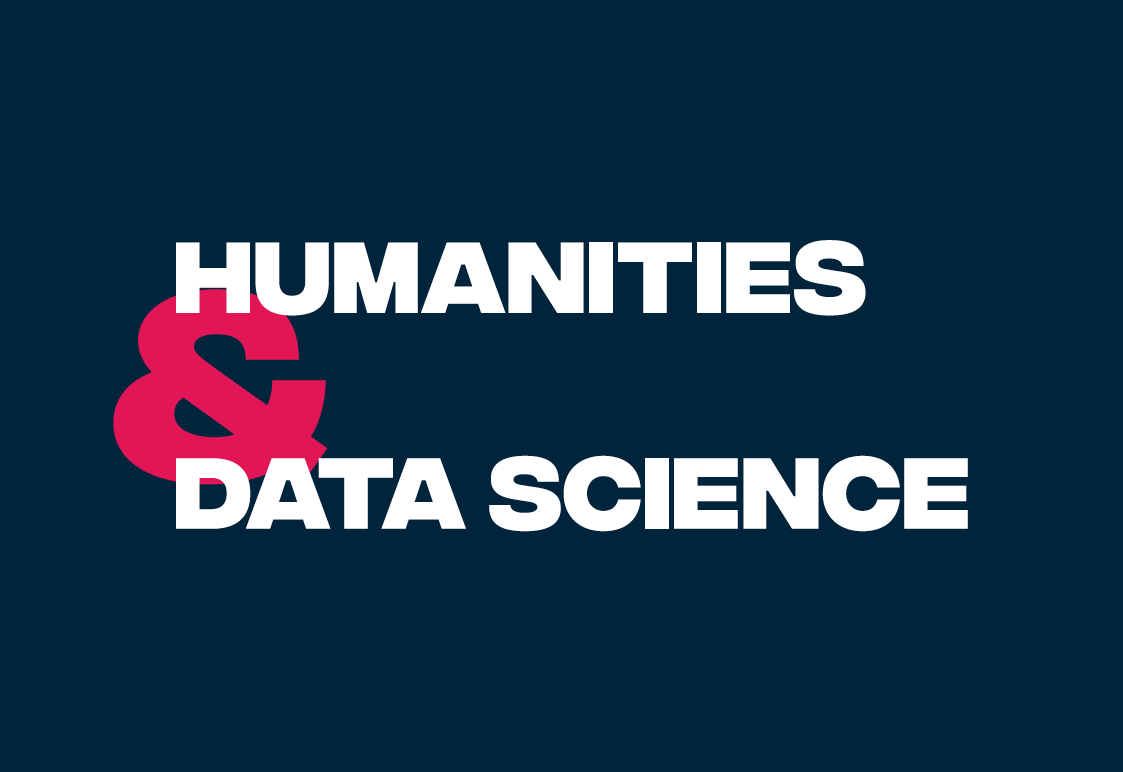
Online registration: https://app.onlinesurveys.jisc.ac.uk/s/oxford/disrupting-digital-humanities-generative-ai-in-research-and-e-1
In-person registration: https://app.onlinesurveys.jisc.ac.uk/s/oxford/disrupting-digital-humanities-generative-ai-in-research-and-edu
The Alan Turing Institute special interest group in Humanities Data Science is hosting an event in Oxford, 'The Impact of Generative AI on the Digital Humanities: Disruption in Research and Education' on 21st June 2024. The event will be held in the Weston Library lecture theatre, with lunch in Blackwell Hall. It will also be streamed online.
The Turing Humanities and Data Science Event on 21 June 2024 brings together experts to explore both the positive and negative disruptive potential of generative AI in research, education, and creative industries. The event, organised by the Turing special interest group “Humanities and Data Science”, features talks and discussions addressing key topics such as the transformative impact of AI on research and education (Ioannis Votsis), experiential learning and training AI models (Chris Birchall), media tokenization and attribution in cultural and creative industries (Frances Liddell), innovations in email archiving and sensitive information handling using generative AI (Peter Chan), and the intersection of generative AI with EU policy and governance in creative arts (Daria Onitiu). Attendees can expect a deep dive into applications of generative AI, its challenges and implications for academia and beyond, highlighting the need for responsible and creative integration of these technologies.

Official event website: https://dhnb.eu/conferences/dhnb2024/cfp/
The DHNB aims to support research, education, and the dissemination of digital humanities in the Nordic and Baltic countries. For over seven years, the DHNB conferences have brought together academics, researchers, students, librarians, archivists, curators and museum professionals interested in creating and using digitised and born-digital collections as research data in the humanities, social sciences and arts. The DHNB has matured both as an organisation and as a community, something which is evident in the extensive compilation of outputs (https://dhnb.eu/publications/). Our annual gatherings have consistently served as a forum to showcase digital research, methodologies, technology, pedagogy and practice at the intersection that exists between academic disciplines and cultural heritage institutions. With its present level of maturity, the DHNB is now offering an opportunity to reflect on the development of these approaches and share insights that have been gained along the way.
One unique aspect of the DHNB community is the active involvement of professionals from libraries, archives, and museums alongside digital humanities researchers. In the DHNB 2024 call for papers, we would particularly like to place emphasis on sharing lessons learned from collaborative initiatives between academic and cultural heritage communities, something that is exemplified by the work of our conference host, the Icelandic Centre for Digital Humanities and Arts.
Topics of interest for the theme of DHNB2024 include, but are not limited to, the following:
CROSS-INSTITUTIONAL AND INTERDISCIPLINARY COLLABORATIONS
EDUCATION AND ADVOCACY
THE LIFE CYCLE OF DIGITAL HUMANITIES AND ARTS PROJECTS
The DHNB encompasses a wide range of disciplines, including the humanities, arts, the social sciences, and related fields. Professionals working in various sectors, such as cultural heritage, information and communications technology, and research software engineering, are encouraged to contribute and share their perspectives on working in an institutional setting within the digital humanities framework. The Program Committee welcomes and encourages submissions from early career researchers, new cultural heritage professionals and individuals who will be attending or presenting for the first time.
| 1 November 2023 | CfP opens |
| 21 January 2024 | CfP (abstracts and full papers) closes |
| 21 January – 15 February 2024 | CfP review period |
| 15 February 2024 | Notifications issued |
| 24 February 2024 | Deadline for submitting revised full papers and abstracts |
| 25 February 2024 | Registration opens |
| 26 April 2024 | Deadline for registering for the conference for all authors |
| 1 May 2024 | Early bird deadline |
| 15 May 2024 | Deadline for uploading posters |
| 15 May 2024 | Registration closes |
| 27-29 May 2024 | Pre-conference workshops |
| 29-31 May 2024 | Conference |
As an interdisciplinary conference between traditions, the conference welcomes both abstract as well as full-text submissions in the following three categories:
Long papers | 20-minute presentations with a 10-minute Q&A
Must be submitted as either:
Short papers | 10-minute presentations with a 5-minute Q&A
Posters and demos with accompanying a 1-minute lightning talk
Between the proposal categories, the following conceptual divisions apply: for long papers, the work is expected to be substantial and robust, while short papers can also report on preliminary or tentative results, or on work that is still in progress. Poster papers can either be small self-contained works, or also general project descriptions. The programme committee also reserves the right to accept submissions in a category different from the one submitted in, so e.g. a long paper can be accepted to be presented as a short paper or as a poster in the poster session.
All full-text submissions must be formatted according to the DHNB PUB template, as they will be published in a citable conference proceedings collection (https://journals.uio.no/dhnbpub/index). The abstracts, on the other hand, will be gathered into a book of abstracts. After the conference, a separate call for post-proceedings will be issued, with its own deadlines for submissions, reviews and revisions. Additional information and instructions can be found on the DHNB website: https://dhnb.eu/publications/.
Apart from the individual paper submissions, the conference also accepts proposals for:
60 to 90-minute panels
Half-day or full-day conference-themed workshops
Workshops can take many forms, from community hacking sessions to thematically focused mini-conferences attached to the main one, whose presentations are either pre-selected, or sourced through separate calls for proposals solicited by the workshop coordinators.
Half-day or full-day tutorials
All proposals should be submitted in English via the ConfTool conference management system. In addition to following the submission-specific requirements outlined above, proposals should clearly state how they contribute to the advancement of topics related to the conference themes, how they relate to previous work (if applicable), and the potential impact they may have on the advancement of the field. All proposals should be accompanied by three to five keywords.
Within the appropriate fields (author details and affiliations), submissions should include: name(s), contact details and the organisational affiliation of the author(s) along with the name(s) of presenters. At least one author of each accepted paper must register for the conference and present the paper. Participants can only be the first author (= presenter) of one paper at the conference and the second author/contributor of one additional paper (long paper, panel, or show-and-tell presentation).
Anyone interested in submitting a proposal for the ad-hoc program, such as drop-in talks, lean coffee, or show-and-tell, can contact us at DHNB2024@hi.is.
Submitted proposals will undergo a single-blind peer-review process whereby the reviewers know the names/affiliations of the abstract authors and co-authors. Authors may be asked to make revisions before publication. The program committee will review all submissions and send out notifications of acceptance/rejection by 15 February.
Authors will be asked to review their submissions before the publication.
For questions, please send an email to DHNB2024@hi.is

Ürituse ametlik veebileht: https://cs.ut.ee/et/sisu/andmeteaduse-seminar-kultuur-ja-andmed
Andmed ja tehisintellekt muudavad praegu kiiresti kõiki teadus- ja eluvaldkondi. Seminaril „Kultuur ja andmed“ räägime eesti kultuuri ja andmeteaduse kokkupuutepunktidest. Käsitleme seda, kuidas kultuuriga seotud andmed tekivad, millised need välja näevad, kuidas neid analüüsitakse ja kasutatakse uues loomingus. Üritus on avalik ja avatud kõikidele osalejatele, palume end registreerida ennekõike osalejate arvu ette ennustamiseks. Seminari akadeemilised korraldajad on Jaak Vilo ja Sulev Reisberg.
Seminar toimub 22. mail Tartu Ülikooli Delta õppehoone ruumis 1037 algusega kell 15.45.
Ajakava:
15.45 Kogunemine, kohvilaud
16.15 Seminari avamine, sissejuhatus
16.20 Indrek Ibrus, „Kultuuriandmete analüüsi arendamine Tallinna Ülikoolis ning alustatud teekond Eesti kultuuri teadmusgraafi suunas“
16.45 Mari Sarv, „Koostöökogemus: tehted folklooriandmetega“
17.10 Anna Aljanaki, „Väikeste andmestike põhjal muusika loomine“
17.35–18.00 Kohvipaus
18.00 Vahur Puik, „Ajaloolised fotod kui andmeallikas – mis on olemas, mis puudu? Ühisloomest ja Ajapaiga kogemusest, masinõppest ka“
18.25 Jaan Naaber, „Andmed ja erakordne kultuurikogemus“
18.50 Paneelarutelu juhib Sulev Reisberg
19:20 Õhtu jätkub vabas vestlusringis, avatud on õue ja Delta katuse terrassid
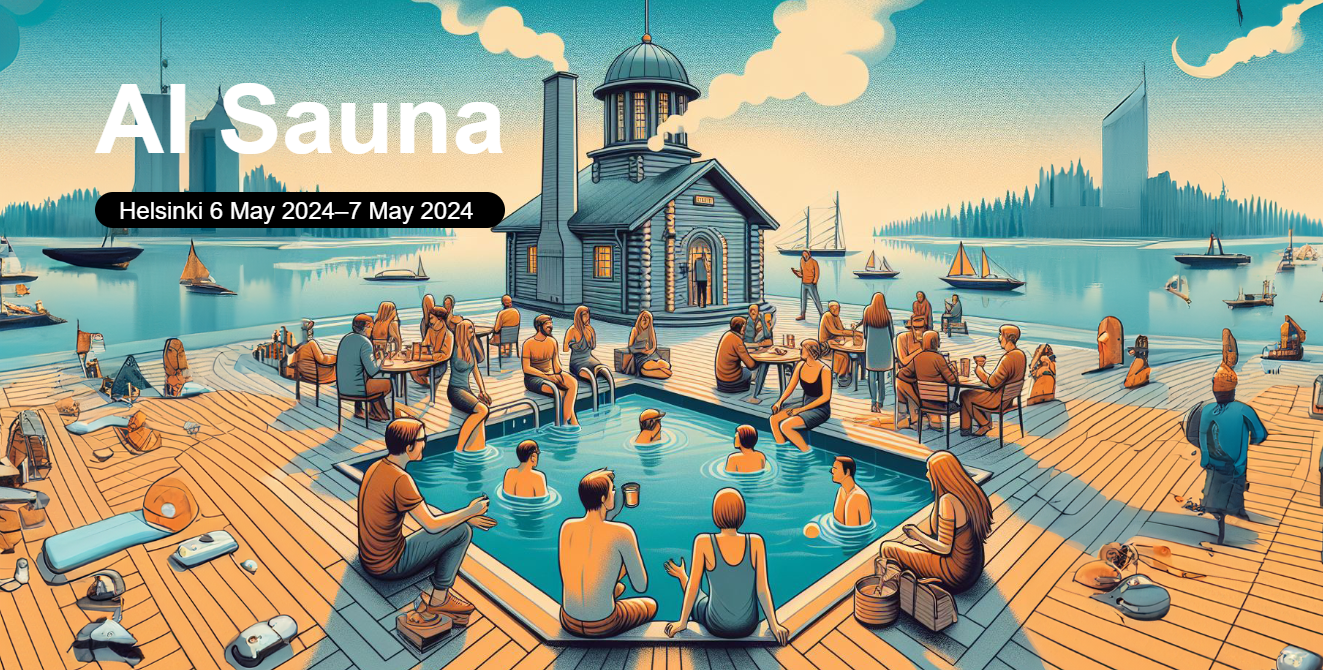
Official event website: https://meta.wikimedia.org/wiki/AI_Sauna
AvoinGLAM invites Open Culture advocates and creators of the open ecosystem to join the Finnish GLAMs (Galleries, Libraries, Archives and Museums), research projects and companies to envision the future of Open Culture in the age of AI. The event takes place in Helsinki 6–7 May right after the Wikimedia hackathon in Tallinn 3–5 May. The two-day event will hear inspire talks from participants, explore common themes and work on them in workshops on the second day.
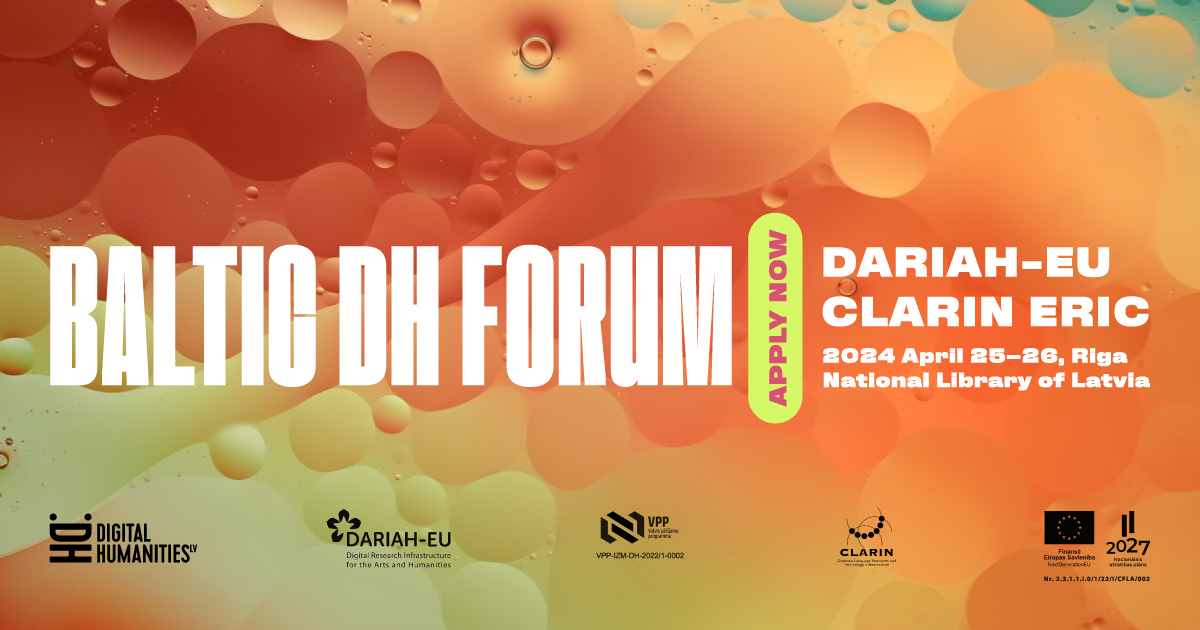
Official event website: http://www.digitalhumanities.lv/baltic-dh-forum-2024
Digital humanities have become a solid part of the research landscapes in the Baltic countries. Certainly, over the past decades, this transformation has been evident through the vibrant and enthusiastic DH communities, the emergence of new research groups and centers, and the increasing presence of digital humanities courses and programs in higher education. This marks the right time for the digital humanities communities of the three Baltic States to come together, to look at how and in what directions DH has developed in our countries, to reflect on what is relevant today and to project what lies ahead in the near future.
The Baltic DH Forum will take place for two days. The initial day will comprise three sessions featuring invited speakers from the Baltic DH research communities, Ministries, and prominent European digital humanities infrastructures, including CLARIN ERIC and DARIAH-EU. The second day is designed as a networking platform providing an opportunity to present DH projects, showcase developed digital resources and tools, and introduce educational initiatives. Additionally, the afternoon of the second day will host a series of workshops covering successful practices in collaborative projects, fundraising opportunities, and other relevant topics.
Participation in the forum with presentation is free of charge with coffee breaks, lunches, and a dinner provided.
To apply for participation in the Baltic DH Forum “Demonstration and Networking Session” (2nd Day), you are invited to submit an abstract of your presentation (200–250 words) in one of the following categories:
Submissions are encouraged in diverse areas within digital humanities, including, but not limited to:
Submit your proposals here by January 25, 2024.
Applications will be peer-reviewed by the programme committee, with the main criterion being relevance to the field of digital humanities.
During the “Demonstration and Networking Session” each presenter is expected to give a brief pitch talk (approximately 5–7 minutes) to the plenary audience, followed by discussions at the poster hall.
After the Baltic DH Forum, participants will be offered an opportunity to prepare a peer-reviewed publication for a special issue of The Baltic Journal of Modern Computing, Scopus-indexed.
If you have any questions, feel free to contact us at dh@lulfmi.lv or sanita.reinsone@lulfmi.lv.
Programme committee:
LV: Sanita Reinsone (ILFA*), Haralds Matulis (ILFA), Inguna Skadiņa (IMCS), Anda Baklāne (NLL), Ilze Auziņa (IMCS), Normunds Grūzītis (IMCS), Antra Kļavinska (RTA), Jānis Daugavietis (ILFA), Valts Ernštreits (UL LI)
LT: Andrius Utka (VDU), Costis Dallas (VU)
EE: Joshua Wilbur (UT)
Administrative support:
Viktorija Piščikova (NLL), Līva Ostupe (ILFA), Māris Bušs (UL DF), Māra Bičevska (UL DF), Elvīra Žvarte (ILFA), Ilze Ļaksa-Timinska (ILFA)
Institutions*
ILFA: Institute of Literature, Folklore and Art of the University of Latvia
IMCS: Institute of Mathematics and Computer Science of the University of Latvia
NLL: National Library of Latvia
RTA: Rēzekne Technology Academy
UL DF: University of Latvia Faculty of Computing
UL LI: University of Latvia Livonian Institute
UT: University of Tartu
VDU: Vytautas Magnus University
VU: Vilnius University
Supporters
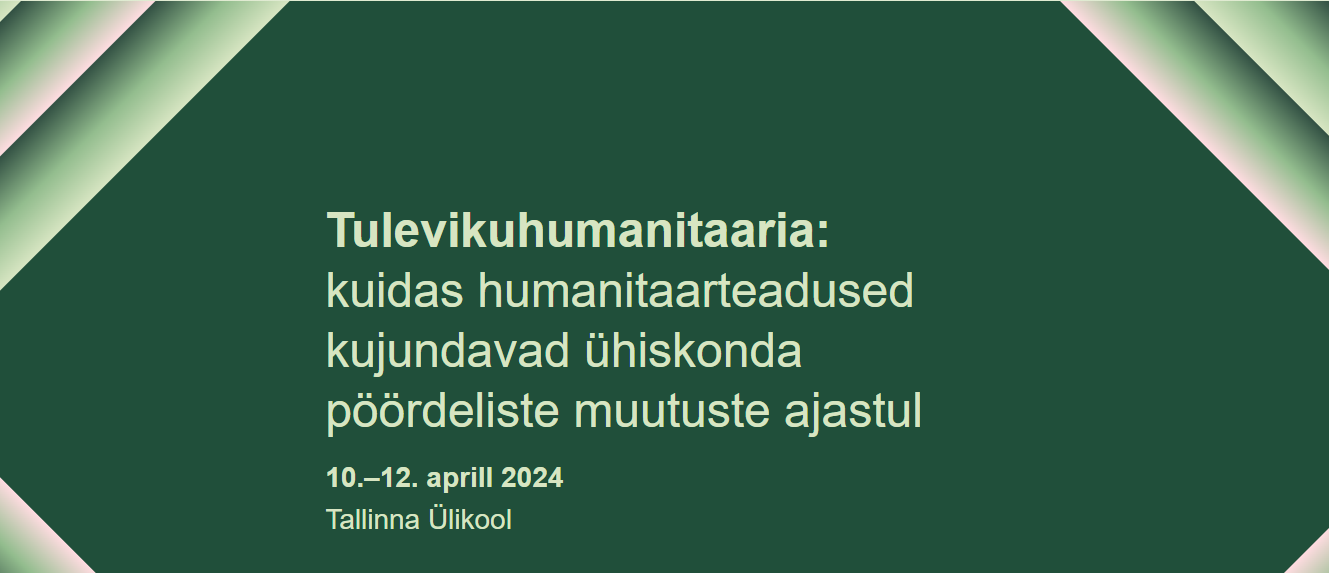
Ürituse ametlik veebileht: https://ehak.ee/
Humanitaarteadused on Eesti teadusmaastiku üks kõige rahvarohkemaid ja kirjumaid valdkondi. Valdkonna areng on viimastel aastatel olnud märkimisväärselt kiire ja rahvusvahelist silmapaistvustki on kogunenud aina rohkem. Siiani on aga Eesti humanitaaridel puudunud foorum ühiseks aruteluks ja kriitiliseks enesevaatluseks; üha sagedasem on olukord, et kolleegide uuematest töödest saab kuulda vaid rahvusvahelistel konverentsidel või lugeda ingliskeelsetest väljaannetest. Kummati on eestikeelne humanitaarteaduslik arutelu väga oluline, seda nii teadlaskonnale endale kui ka kogu ühiskonnale, sest kutsumuselt on humanitaaria ennekõike tagasisideteadus, mille üks missioone on tagada kultuurile enesemõistmise võime. Sooviga elavdada humanitaarteaduslikke arutelusid ja suurendada kollegiaalset läbikäimist oleme sotsiaalteadlaste eeskujul ellu kutsunud uue regulaarse teadusfoorumi nimega Eesti humanitaarteaduste aastakonverents. Viie ülikooli ning nelja teadus- ja arendusasutuse koostöös algatatud konverents on mõeldud toimuma üle aasta, vaheldumisi Tallinnas ja Tartus.
Esimene Eesti humanitaarteaduste aastakonverents toimub Tallinna Ülikoolis 10.–12. aprillil 2024. Selle katusteema on „Tulevikuhumanitaaria“. Teema on valitud teadlikult kahetähenduslikuna, nii et see lubaks ühelt poolt arutleda humanitaarteaduste uute suundade, värskete tööviljade ja tulevaste võimaluste üle, teiselt poolt aga mõtestada konkreetsemalt tulevikukujutelmade rolli kultuuris ja ühiskonnas. Ühtlasi viitab aastakonverentsi pealkiri korraldajate veendumusele, et humanitaaria on üks tähtsamaid tulevikuteadusi, mis seoses suurte muutustega looduskeskkonnas ja tehnoloogias on omandamas üha suuremat kaalu inimühiskonna tuleviku mõtestamisel ja kujundamisel. Samas seavad needsamad suured muutused aina enam küsimuse alla tavapärase inimkeskse maailmapildi, mis sunnib humanitaariat kriitiliselt ümber mõtlema enda rolli inimteadusena. Tänavu kevadel alustanud uue rahvusvahelise teadusajakirja Future Humanities juhtkiri tõdeb asjakohaselt: “Ühest küljest usume, et humanitaarteadused ei ole kaugeltki kriisis, vaid läbivad pigem äkilist teisenemist, mis lõpuks viib suurema ümberkujunemiseni; teisest küljest leiame, et humanitaarteadused peaksid vaatama kaugemale, hindama kriitiliselt oma humanistlikku pärandit ning otsima viljakat igakülgset suhtlust nüüdisaja loodusteaduste ja kunstidega.“
Eesti humanitaarteaduste esimene aastakonverents kutsub üles kõiki Eesti humanitaarteadlasi jagama oma mõtteid ja uurimustöö tulemusi inimteaduste ja inimühiskonna tulevikust. Järgnev loetelu aruteluteemadest on mõeldud vaid esialgse orientiirina, mitte suletud nimekirjana:
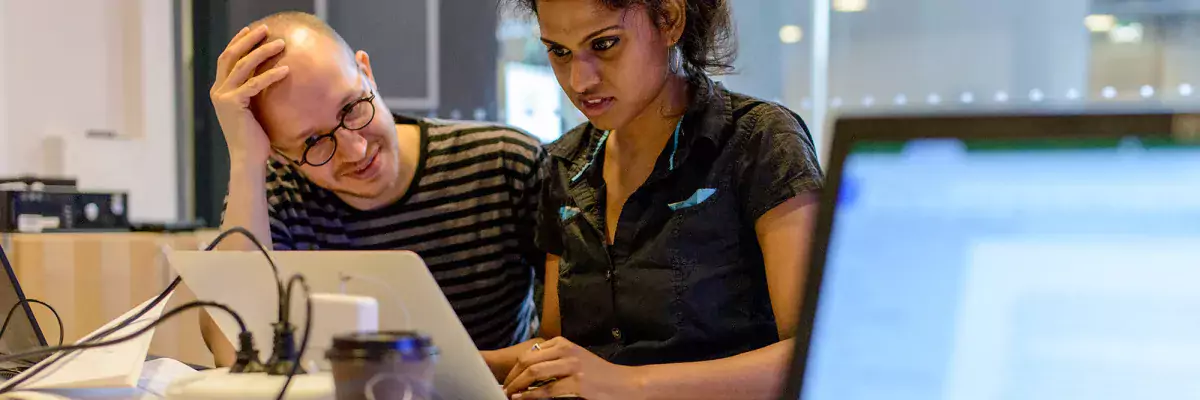
Official event website: https://www.helsinki.fi/en/digital-humanities/teaching/digital-humanities-research-seminar
Thursdays at 16:15-18:00 (time in Finland = EEST/EET time zone)
Place: Metsätalo, Lecture Hall 17 and Zoom (unless otherwise noted)
If you want to participate in-person, come to Metsätalo, Lecture Room 17 unless otherwise noted. You can also take part on Zoom (unless otherwise noted).
Meeting ID: 671 1257 5191
Passcode: 123123.
Updates and possible changes will be noted in due course. The seminar is open. If you want to join our mailing list, need credits, or have any questions about the seminar, write to Mikko Tolonen.
And, as always, all welcome!
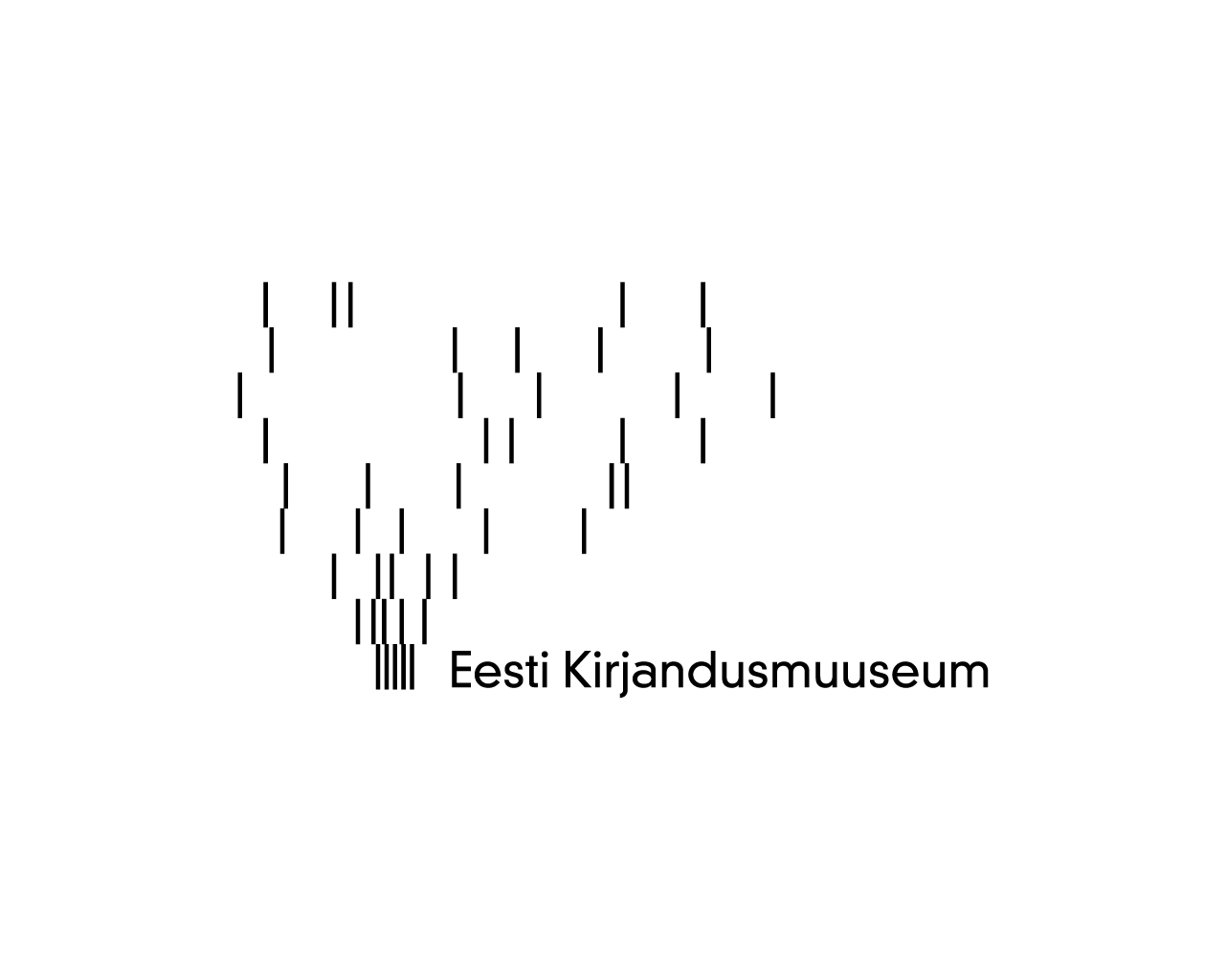
Ürituse ametlik veebileht: https://www.kirmus.ee/et/tegevus/uritused/67-kreutzwaldi-paevade-konverents-kilplasest-ja-kratist-tehisintellektini-loodus
19.-20. detsembril toimub Eesti Kirjandusmuuseumis 67. Kreutzwaldi päevade konverents, millega tähistatakse ühtlasi Fr. R. Kreutzwaldi 220. ja Lydia Koidula 180. sünniaastapäeva.
Konverentsil "Kilplasest ja kratist tehisintellektini: loodus, loovus ja tehnoloogia" kutsume esinejaid arutlema teemadel, mis vaatlevad loovuse kanduvust suuliselt tasandilt kirjalikule, loodusliku nihkumist tehislikkuse poole, aga ka tehnoloogiaga seotud ohtude, hirmude ja võimaluste ning tehnoloogiast tulenevate eetikaküsimuste üle nii humanitaarias kui ka teistes valdkondades.
AJAKAVA:
Teisipäev, 19. detsember:
10.00–11.15 Avamine:
Piret Voolaid Eesti Kirjandusmuuseumi aasta 2023
Koostöölepingu allkirjastamine Eesti Kirjandusmuuseumi ja Kõrgema Kunstikooli Pallas vahel
Kõrgema Kunstikooli Pallas näituse “Kilplasest ja kratist tehisintellektini: loodus, loovus ja tehnoloogia” avamine
11.15–12.15 Peaettekanne: Mark Fišel: Väheste ressurssidega soome-ugri keelte keeletehnoloogia: milleks ja kuidas?
12.15–13.15 Lõuna
13.15–14.45 I paneel:
Helen Eenmaa: Personaliseeritud, automatiseeritud, õiglane maailm
Tõnis Parksepp: "Kalevipoja" algupärast ehk mida tehisintellekt (veel) ei mõista
Marin Laak: Kalevipoja hobune: tehistaibuga uudismaal
14.45–15.00 Kohvipaus
15.00–16.00 II paneel:
Anu Raudsepp: Eestlaste minevikukäsitluse muutused eepose “Kalevipoeg” trükiväljaannetes ja tõlgetes
Sirje Olesk: Kreutzwaldi ja Koidula kirjavahetuse kontekst
16.00–16.30 Ivar Ivaski stipendiumi väljakuulutamine
16.30–16.45 Kohvipaus
16.45–17.25 esitlused:
1. “Armas hiilgav laulik”. Ivar Ivaski ja Marie Underi kirjavahetus 1957–1958. - Litteraria. Eesti kultuuriloo allikmaterjale, vihik 28. Toimetaja Tiina Saluvere, saatesõna Tiina Ann Kirss ja Marin Laak. EKM Teaduskirjastus, 2023. - Esitleb Tiina Ann Kirss
2.”Friedrich Reinhold Kreutzwaldi ja Lydia Koidula kirjavahetus 1867–1873” 2., täiendatud ja parandatud trükk 1962. a väljaandest. Toimetanud Mart Lepik (1962), Kanni Labi (2023). - Esitleb Kanni Labi
3. Methis 31-32, 25. köide, ingliskeelne kaksiknumber "Translation and Literary Multilingualism".
Külalistoimetajad Daniele Monticelli, Maris Saagpakk ja Anna Verschik. - Esitleb Maris Saagpakk
4. “Inimesed muutuvas ajas. Kuuendat põlve õpetaja” EKM Teaduskirjastus 2023. - Esitleb Jaan Ross
5. " Lükata-tõmmata, hargiga-roobiga" Jaan Rand, Helisalvestusi Eesti Rahvaluule Arhiivist 16. - Esitleb Natali Ponetajev
Kolmapäev, 20. detsember:
10.00–11.00 Peaettekanne: Jaan Aru: Loovus tehisaru ajastul
11.00-11.15 Kohvipaus
11.15 - 13.15 I paneel:
Andres Karjus: Suured keelemudelid tekstianalüütika kontekstis
Kadri Vider: Kuidas me suhtleme tehistaibuga?
Andrus Tins: Tehistaip – kas inspiratsiooni või hirmude allikas? Eesti veebikogukondade lood tehisintellekti teemadel
Vivian Puusepp: Kes on selle teksti autor? Tehisintellekti rollist tekstiloomes lähtuvalt laiendatud vaimu lähenemisest
13.15–14.15 Lõuna
14.15–15.45 II paneel:
Janika Oras, Žanna Pärtlas, Tanel Torn, Mari Kaisel, Hans-Gunter Lock: Seto mitmehäälse laulu digiõppevahendi loomine: lähtekohad ja esmased lahendused
Triinu Pihus: Tehisintellekti võimalused ja väljakutsed hariduses
Olha Petrovich: Artificial Intelligence and Lydia Koidula’s Creativity: Opportunities and Challenges in the Digital Educational Environment
15.45-16.00 Kohvipaus
16.00–17.15 III paneel:
Inna Lisniak: Preservation and transformation of Ukrainian folklore in the conditions of war 2022
Kristi Metste, Riina Raudson: Heinrich Rosenthali perekonnaalbum kui kultuuriloo allikas ja artefakt
Klaus-Amandus Jõgi, Ave Goršič: Kuidas treenida Kreutzwaldi?
KAVA JA TEESID: >>>
Konverentsi kannab üle ka KirmusTV
Info: Ave Goršič, ave.gorsic@kirmus.ee
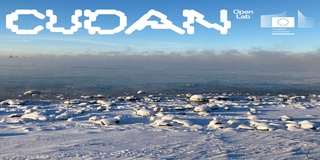
Official event website: https://cudan.tlu.ee/conference/
We invite submissions for the Cultural Data Analytics Conference 2023 / CUDAN 2023, organized by the ERA Chair project for Cultural Data Analytics at Tallinn University, generously funded by the European Commission. Inspired by initial large gatherings of the cultural analytics community, including UCLA/IPAM 2016, and multidisciplinary conferences such as NetSci, IC2S2, or CCS, we aim to bring together researchers, practitioners, and stakeholders using methods of cultural data analytics to understand cultures and cultural production. This particularly includes multidisciplinary combinations of quantification, qualitative inquiry, computational analysis, and visualization to make sense of large cultural datasets, including visual, audiovisual, linguistic, and other genres of socio-cultural materials. The conference is scheduled to happen in Tallinn, Estonia from December 13 to 16, 2023, including a number of leading invited practitioners, peer-reviewed talks, and poster contributions from the community.
Abstracts due: July 24, 2023 (23:59 CET)
Notification of acceptance: September 14, 2023
Conference: December 13-16, 2023
Pre-conference workshops: December 13, 2023
Main conference: December 14-16, 2023
 Winter morning in Tallinn. CC-BY Maximilian Schich
Winter morning in Tallinn. CC-BY Maximilian Schich
– Petter Holme, Aalto University, Helsinki, Finland (https://petterhol.me/)
– Béatrice Joyeux-Prunel, Université de Genève, Switzerland (https://www.unige.ch/…)
– Mauro Martino, Visual Artificial Intelligence Lab, IBM Research, Boston, USA (https://www.mamartino.com/)
– Anu Masso, TalTech, Tallinn, Estonia (https://taltech.ee/…)
We invite authors to submit a single-page abstract pdf including a (mandatory) descriptive figure and caption by the 24th of July 2023 via our OpenReview submission system. We accept contributed talks, lightning talks, and posters (please indicate your preference). We strive for an in-person event to maximize community interaction, yet we will offer a limited amount of remote presentation slots. Review is single-blind.
In the spirit of multidisciplinary abstract conferences and idea conferences, we encourage submissions which aim to present entirely novel work, and also recently published contributions which would benefit from broader multidisciplinary discussion. In the latter case, please make sure to cite the original publication venue.
SUBMIT HERE: https://openreview.net/group?id=CUDAN.tlu.ee/2023/Conference
Cultures and cultural production are multifaceted phenomena, which, like other complex systems, cannot be fully understood from the perspective of a single specific discipline. This is why the core mission of cultural data analytics is to join forces and make headway across disciplines and domains of expertise. Feeding into this mission, we welcome both multidisciplinary submissions, and contributions from specific disciplines, which aim to benefit from discussion in a multidisciplinary forum.
We encourage discussion towards a deeper understanding of cultures and cultural production including aspects, methods, and intersections of the following fields:
– cultural analytics, culturomics, and socio-cultural data science;
– digital humanities and computational humanities;
– cultural evolution, including experimental and observational approaches;
– cultural complexity science, network science, computational social science, and social physics;
– computational linguistics, quantitative aesthetics, critical computer vision, and machine learning;
– art history, cultural history, cultural semiotics, film studies, musicology, and urbanism;
– artistic research, algorithmic curation, and AI art (including aspects of cultural data analysis);
– creative industries research, media economics, and policy studies;
– data journalism, data science, and information visualization.
Contributions ideally address at least one of the following subject domains (in line with state-of-the-art conceptual reference models for cultural data):
– material aspects, including artworks, architecture, texts, images, sound, film, digital media, databases, and other forms of tangible cultural heritage;
– conceptual aspects, including cultural practices, rituals, theories, policies, data models, narratives, imagined communities, and other forms of intangible cultural heritage;
– social aspects, including human behaviour, human mobility, social networks, and social media;
– temporal aspects, from slow historical processes to turbulence in today’s economy of attention;
– spatial aspects of historical topography, cultural geography, and urban dynamics;
– event aspects, which combine the above aspects in cultural co-production, event series, tourism, etc.;
– network aspects of socio-cultural interaction, including the inherent ecology of complex networks as documented in the structure and dynamics of large cultural knowledge graphs or blockchains associated with the crypto-art-market, for example.
The CUDAN 2023 main conference programme (December 14-16, 2023) will include six keynotes covering the spectrum of relevant disciplines, a lightning talk session in the plenary, parallel sessions, and a poster section. The latter will run throughout the whole conference in the coffee and lunch area that is collocated with the plenum. The conference will close with a best poster and best paper award ceremony.
The pre-conference day (December 13, 2023) will feature introductory workshops by CUDAN senior fellows, covering aspects of cultural data analysis and visualization using Python, R, Tableau, and the Collection Space Navigator.
Before and after the main conference, we will offer sightseeing tours, including the medieval Tallinn old town and Christmas market (among many reasons to visit Estonia).
We are further planning a meet the publisher’s session and other opportunities for relevant stakeholders, including exhibition booths.
If you or your institution/company is interested in participation, please contact us via email to cudan@tlu.ee, ideally before September 14, 2023.
As we are fully funded through the European Commission, there will be no conference fee for accepted participants, with the exception of the conference dinner. Accepted participants are required to register and confirm their attendance. Information regarding accommodation (including reduced rate hotels) and a form to order VISA support letters will be announced on the conference website (https://cudan.tlu.ee/conference/).
Maximilian Schich, CUDAN ERA Chair holder
Lev Manovich, Cultural Analytics Lab, City University of New York, US
Andres Karjus, CUDAN Senior Fellow (computational linguistics)
Ksenia Mukhina, CUDAN Senior Fellow (computer science)
Mila Oiva, CUDAN Senior Fellow (cultural history)
Mikhail Tamm, CUDAN Senior Fellow (social physics)
Sandra Kaljumäe, CUDAN Project coordinator
Sirli Peda, Tallinn University Conference Center
Sirli Taniloo, Tallinn University Conference Center
James Abello Monedero, Rutgers University, US
Yong-Yeol Ahn, Indiana University, Bloomington, US
Ruth Ahnert, Queen Mary University of London, UK
Sebastian Ahnert, University of Cambridge, UK
Kim Albrecht, Artist, Berlin, DE
Eduardo Altmann, The University of Sydney, AU
Sandra Alvaro, Universitat Autònoma de Barcelona, ES
Stefano Balietti, Universität Mannheim, DE
Clarisse Bardiot, Université Rennes 2, FR
Maria Christina Binz-Scharf, CUNY City College of NY, US
Chico Q Camargo, University of Exeter, UK
Nicola Carboni, Université de Genève, CH
Damiano Cerrone, Tampere University, FI
Javier Cha, University of Hong Kong, HK
CJ Chen, Nanjing University, CN
Ana Clemente, University of Barcelona, ES
Bronwyn Coate, RMIT University, AU
Michele Coscia, IT-University of Copenhagen, DK
Brian Coxall, Brigham Young University, US
David J. Crandall, Indiana University, US
Christine Cuskley, Newcastle University, UK
Maria-Rita D’Orsogna, University of California, Los Angeles, US
Kate Elswit, University of London, UK
Sara Irina Fabrikant, University of Zurich, CH
Elena Fedorovskaya, Rochester Institute of Technology, US
Jianbo Gao, Beijing Normal University, CN
David Garcia, Universität Konstanz, DE
Bruno Goncalves, Data For Science, Inc., US
Jack Grieve, University of Birmingham, UK
Daria Gritsenko, University of Helsinki, FI
Thilo Gross, HIFMB & Universität Oldenburg, DE
Ryan Heuser, Princeton University, US
Yurij Holovatch, National Academy of Sciences of Ukraine, UA
Natalie M Houston, University of Massachusetts at Lowell, US
Ana Jofre, SUNY Polytechnic Institute, US
Mauri Kaipainen, Perspicamus, Helsinki, FI
Folgert Karsdorp, Meertens Institute, NL
Lindsay King, Stanford University, US
Harald Klinke, LMU Munich, DE
Ilias Kyriazis, Fachhochschule Potsdam, DE
John Laudun, University of Louisiana at Lafeyette, US
Kristoffer Laigaard Nielbo, Aarhus Universitet, DK
Lik-Hang Lee, Hong Kong Polytechnic University, HK
Liina Lindström, University of Tartu, EE
Jordi McKenzie, Macquarie University, AU
Stefania Milan, University of Amsterdam, NL David Mimno, Cornell University, Ithaca/NY, US
Daria Morozova, Ecole des Hautes Etudes Commerciales, FR
Cassini Nazir, University of North Texas, US
Maarja Ojamaa, University of Tartu, EE
Giovanni Petri, Northeastern University London, UK
Iyad Rahwan, Max Planck Institute for Human Development, DE
Martin Rosvall, Umeå University, SE
Louis Michael Shekhtman, Northeastern University, Boston, US
André Skupin, San Diego State University, US
Oleg Sobchuk, Max Planck Institute for Evolutionary Anthropology, DE
Juan Luis Suárez, University of Western Ontario, CA
Pablo Suarez-Serrato, Universidad Nacional Autónoma de México, MX
Nina Tahmasebi, Språkbanken (The swedish language bank), SE
Timothy R Tangherlini, University of California, Berkeley, US
Mark Taylor, University of Sheffield, UK
Jer Thorp, New York University, US
Lauren Tilton, University of Richmond, US
Mikko Tolonen, University of Helsinki, FI
Stephen Miles Uzzo, National Museum of Mathematics, US
Melvin Wevers, University of Amsterdam, NL
Hyejin Youn, Northwestern University, Evanston, US
For updated information, please re-check the conference website (https://cudan.tlu.ee/conference/).
In case of questions, please do not hesitate to contact us via email to cudan@tlu.ee.
We’d love to welcome you in Tallinn, Estonia in December 2023!
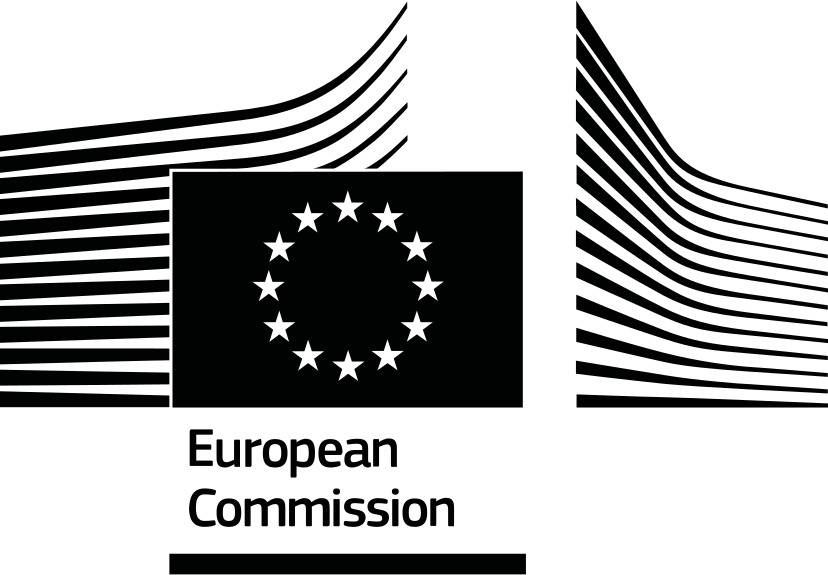

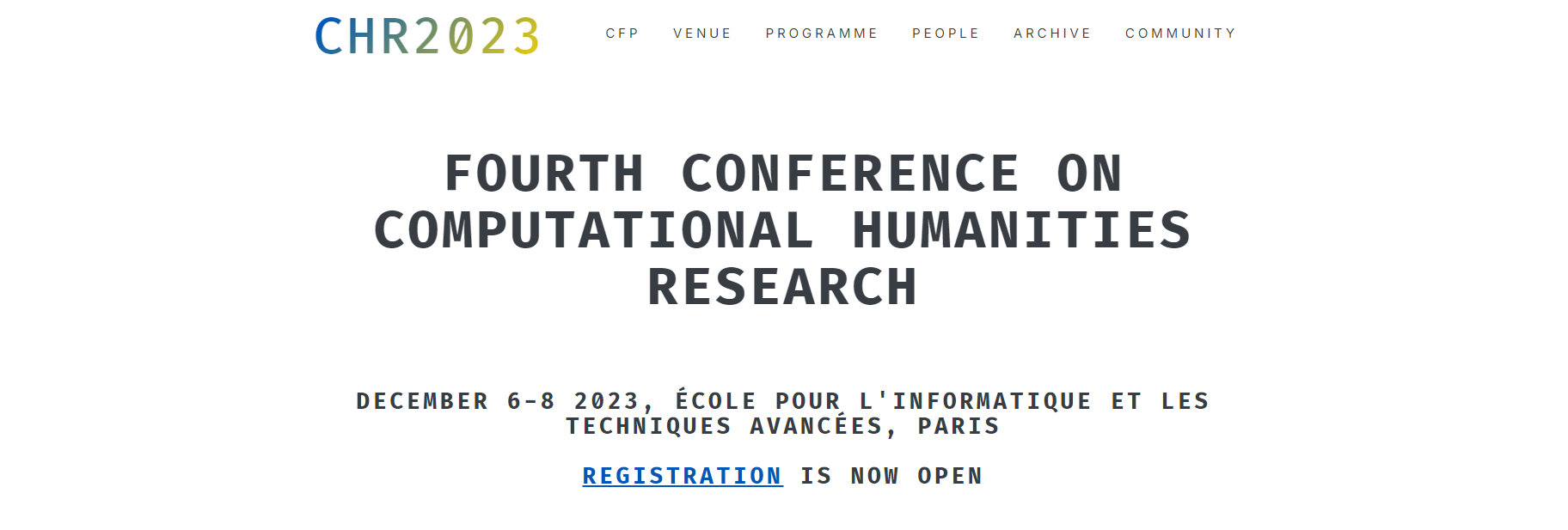
Official event website: https://2023.computational-humanities-research.org/
The Computational Humanities Research (CHR) community is an international and interdisciplinary community that supports researchers with an interest in computational approaches to the humanities.
The 2023 edition of the Computational Humanities Research conference will take place on December 6-8, 2023 in Paris at the École pour l’informatique et les techniques avancées. Expect more details about CHR2023 soon!
Visit our forum for the latest updates and more information about the conference.
We are very honoured and pleased that Richard McElreath, Olivier Morin, and Roberta Sinatra have agreed to give keynote lectures at CHR2023.
Eesti Rahvusraamatukogu
Tõnismägi 2, 10122 Tallinn
+372 630 7100
info@rara.ee
rara.ee

